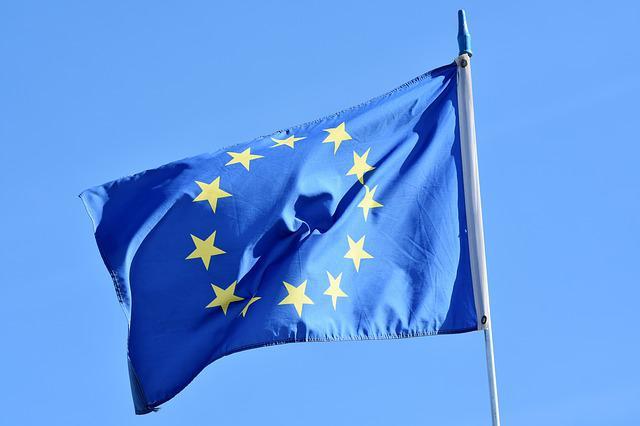What the EU gives and takes
The European Union is a very interesting topic, and today I want to take a look at what the EU takes from its 27 member states and what it gives in return.
What does the EU take?
The EU has a pretty impressive budget, easily surpassing 160 billion euros in 2022 alone.
The vast majority of this budget comes from forced “contributions” of its member states.
The biggest contributors are (2020 numbers, in billion euros):
- Germany: 28
- France: 23.7
- UK: 17 (guess that party ended now)
- Italy: 16.6
- Spain: 11
- Netherlands: 5.8
- Poland: 4.9
- Belgium: 4.7
- Sweden: 4
- Austria: 3.5
On average, an EU citizen pays €250 per year to the EU.
Doesn’t look like much, but keep in mind that this is on average and …
If you were to invest 250 euro per year in some sort of investment which brings you an 8% return (like an index fund) and you reinvest the profit, after roughly 30 years you would have had an extra €28.547.
Put it that way, and the EU does in fact take quite a decent chunk of money from each person.
There are countries who contribute more than they get out of the EU monetarily speaking, so called “net contributors”:
- Germany
- France
- Italy
- The Netherlands
- Austria
- Finland
- Sweden
- Denmark
- Ireland
These countries cough up more money to make up for the following nations who take more than they give:
- Poland
- Greece
- Romania
- Hungary
- Portugal
- Czech Republic
- Belgium
- Luxembourg
- …
The UK used to also be a net contributor, until they had enough of it and left the EU.
They were the first, but will they be the last?
Probably not, as the West continues to collapse it’s likely other nations will realize they cannot afford the drain anymore.
How is this fair, you might ask?
It isn’t … so how did they end up with this system?
Well, each country pays the same proportion of its national income to the EU budget, so richer countries pay more and poor countries pay less.
In addition, the European Union takes 75% of the customs duties, agricultural duties and sugar levies collected by each member state when goods enter the customs union.
Yes, you read that right. 75%.
Check out my new book, available on Amazon!
Get the bookWhere does this money go?
Here’s a rough division of how the EU budget gets spent (it changes a bit every year):
- 48% Smart and Inclusive Growth
- 35 % Sustainable Growth: Natural Resources
- 6% Global Europe
- 6% Administration
- 7% Security and Citizenship: Asylum, education and culture
- 6% Special Instruments
In one sentence: roughly 75% of the budget goes to agriculture and development of poorer areas of the EU.
Wealth redistribution.
What does the EU give?
Now, let’s start this section with a quote from the site of the EU itself:
The EU budget is not a zero-sum game. Everybody wins from EU membership, enjoying borderless travel, affordable phone calls from abroad and a coordinated EU response to the coronavirus pandemic and its consequences. All EU Member States benefit from being part of the single market, addressing the challenges of migration and fighting terrorism and climate change together, as well as from better roads, modernised public services and cutting-edge medical treatment.
They also wish to pre-emptively address critics:
The narrative about how much each EU country is getting out of the budget versus how much they are contributing is therefore flawed. This narrative does not take into account Member States’ benefits from the single market. Neither does it measure the business opportunities that cohesion policy – the EU’s main investment policy – creates for businesses from across the Union. The EU contributes significantly to the economies of its Member States and this is completely ignored in these calculations.
Sounds like a lot of justification to me.
But that being said, I cannot disagree with the statement that the concept of the EU does provide a lot to its member states, such as the open borders, a common currency, easier trading and … well, that’s about it I guess.
- International security maybe? But no, that’s NATO’s territory.
- Enforcing international law? Nope, that’s the UN.
I also find it hilarious they mention “addressing the challenges of migration” while they bring in millions of unemployable refugees and then force member states to feed them, house them, and fund them.
And if a member state, like Hungary or Poland, refuses to cooperate with this insane, nation-destroying tactic, they get met by harsh criticism and sanctions.
Is the EU worth it?
Let’s take a look at what all these numbers boil down to.
Yes, there is no doubt in my mind that the concept of the EU has merits.
Like the quote from earlier stated: “borderless travel, affordable phone calls from abroad and a coordinated EU response to the coronavirus pandemic and its consequences”.
I think it’s fair to just ignore the silly boast about affordable phone calls from abroad in a time of global internet, and how in earth they think their overreaction to the coronavirus was in any way something to be proud of is beyond me.
However:
- Open borders is great for trading and transport … but not so much when there are millions of mostly unemployable immigrants from poor countries flooding into your area, and when you then force your member states to house, clothe, feed and pay these immigrants
- One currency is great for convenience, but not so much when it crashes – which it certainly can do – because an economic disaster in one country can then impact all the other nations
Having every country contribute the same percentage of its national income sounds fair in principle, very democratic … but what this leads to in practice is poorer countries taking advantage of richer countries … who are slowly being sapped of their funds in many ways.
This is a redistribution of wealth, ultimately aimed at making the states all equal … but those who contribute most also gain the least.
Socialism, in other words.
The EU imposes strict rules on its member states, and if a state doesn’t agree with those rules, well … no choice really.
Conform or get severely punished through sanctions.
Has the EU made its member states safer?
Well, no, crime is rising in nearly every country, due to a multitude of factors, not in the least the already mentioned mass importation of barbarism.
Conclusion: I like the concept of the EU.
I think individual nations working together for mutual gain is awesome, and definitely the way forward towards a prosperous planet … but not in the forced and inefficient way the EU is doing it.
Just look at successful collaborations of nations such as MERCOSUR or ASEAN and you’ll see how this can be handled much better.
The EU is a massive reason why Europe is collapsing, and it cannot last.
The UK got out already, and it won’t be the last country to realize that the EU takes more than it gives.
Check out my new book, available on Amazon!
Get the book

